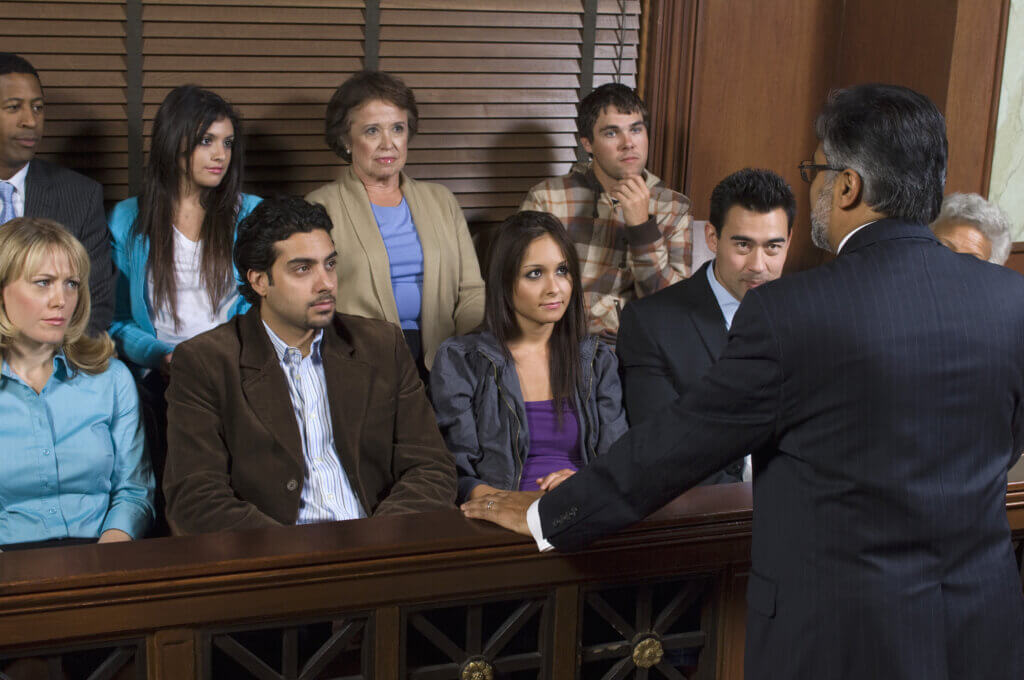2/28/22 - Insights
Can Litigants Request a Jury Trial in Federal Bankruptcy Court?

By Andrew S. Hicks, Bryan Zubay, and James A. Keefe
Litigants often seek to remove cases to federal bankruptcy court when one of the parties is in or enters bankruptcy. Where the claims at issue are not directly bankruptcy-related, the ultimate destination of the case (i.e., whether the case is remanded to state court, withdrawn to a federal district court, or kept in the bankruptcy court) can hinge on several factors, including whether a party has demanded a jury. This factor recognizes the friction between a party’s right to a jury and the default inability of federal bankruptcy courts to preside over jury trials.
What parties may not realize is that a federal bankruptcy court can preside over a jury trial and enter judgment on the verdict as long as it has the consent of the parties. Much like federal magistrate judges,[1] although federal bankruptcy judges do not ordinarily have the authority to finally dispose of certain cases, they can do so with the consent of all parties. By statute, “If the right to a jury trial applies in a proceeding that may be heard under this section by a bankruptcy judge, the bankruptcy judge may conduct the jury trial if specially designated to exercise such jurisdiction by the district court and with the express consent of all the parties.”[2]
This raises three questions:
- Which proceedings can be heard by a federal bankruptcy judge?
- What does “specially designated” mean in this context?
- How should the parties express consent?
First, federal bankruptcy courts “may hear and determine all cases under title 11 and all core proceedings arising under title 11 or arising in a case under title 11[.]”[3] Bankruptcy courts may also hear non-core proceedings that are “otherwise related to a case under title 11.”[4] Among these two types of bankruptcy cases, bankruptcy courts may conduct jury trials involving a core proceeding assuming all prerequisites are met.[5]
Second, many federal bankruptcy courts are already “specially designated.” Some district courts have general orders designating the bankruptcy judges of respective districts to conduct jury trials. For example, the Southern District of Texas general order 1995-05 “designates the bankruptcy judges of this district to conduct jury trials.” Absent such a general order, the parties should file a request for special designation with the appropriate federal district court.
Third, much like consenting to trial before a federal magistrate judge, parties before a federal bankruptcy court may simply file a written consent signed by all parties or their counsel.
Why is a jury trial in bankruptcy court desirable? One major benefit is the certainty as to which court will take the case to judgment. Another significant benefit is that a party may use the ability to consent as a bargaining chip in negotiations over remand. And, contrary to what some may think, consent can lead to a streamlined decision-making process that could bring about resolution of the matter much earlier. Under the right circumstances, consent to a jury trial in federal bankruptcy court is a viable option worth considering.
Andy Hicks is the managing partner and Bryan Zubay and James Keefe are associates at Schiffer Hicks Johnson PLLC, a Houston-based trial law firm.
[1] 28 U.S.C. § 636(b)(1).
[2] 28 U.S.C. § 157(e).
[3] 28 U.S.C.§ 157(b)(1).
[4] 28 U.S.C.§ 157(c)(1).
[5] Some cases have determined that bankruptcy courts cannot conduct a jury trial involving a non-core proceeding because it would violate the Seventh Amendment. See, e.g., In re Daewoo Motor Am. Inc., 302 B.R. 308, 314 (C.D. Cal. 2003) (bankruptcy court can conduct jury trial over a core proceeding but not over a non-core proceeding); In re Lawrence Grp., Inc., 285 B.R. 784, 788 n.2 (N.D.N.Y. 2002) (“Bankruptcy courts are constitutionally prohibited from holding jury trials in non-core matters.”) (citing In re Orion Pictures Corp., 4 F.3d 1095, 1101 (2d Cir. 1993)).